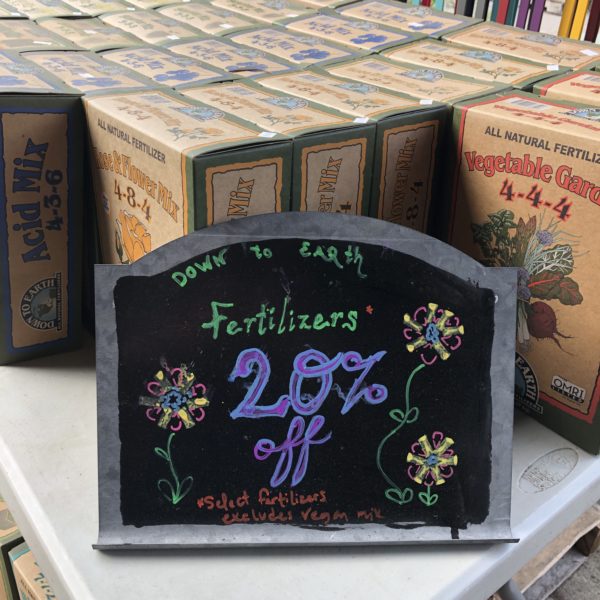Sacramento soils tend to be mineral rich… and clayey. Or perhaps you live near one of our two main rivers and your soil tends to be on the sandier side. Either way, your garden beds are probably crying out for compost right about now if you haven’t added any in the last six months to a year (or longer… gasp!). The reason our gardens require regular applications of compost is because organic matter (a rough term for what compost provides) breaks down very rapidly in our Mediterranean climate.
In fact, compost gets gobbled up by natural microorganisms, insects, fungi and earthworms… and when grass clippings, leaves and other forms of “future compost” are carted away by our local mow-and-blow companies. The breakdown of compost becomes nutrients for your plants, but unlike the sand, silt and clay that makes up your soil’s basic texture… when organic matter is gone, it’s gone! In fact, you may notice the soil level in your beds and flower pots is looking lower than when you first planted. If that’s the case, it’s time to head to the nursery for some bagged soil amendments!
Adding compost not only improves your soil’s structure (think porosity and workability), and fertility, but it also attracts all those beneficial microorganisms and earthworms that act like tiny rototillers below ground… creating more soil nutrients and air space for happier root systems.
There are two ways of adding compost to your garden beds– the lazy way or the thorough way. The lazy way to add compost is to “topdress” your beds and pots by adding a layer of compost and letting nature do the rest. The more thorough way to add compost is to to mix it in with your existing soil. There’s also a hybrid method where you lazily topdress your beds, and then mix compost into the soil only where you are placing new plants, or for replenishing depleted container potting soil.
The lazy among us will be happy to know that “minimum tillage” is the favored method of working the land these days. Gone are the days of gas powered rototillers chomping soil in garden beds all over Sacramento. Yesterday’s rototiller is today’s more gentle broadfork.
At The Plant Foundry, E.B. Stone Organics supplies our bagged compost products, and it comes in a few different “flavors” and sizes–
Compost (1 cubic foot)
Planting Mix (1.5 cubic feet)
Big Harvest (3 cubic feet)
Earthworm Castings (1 cubic foot)
Worm castings or “vermicompost” is a special type of pre-processed compost that is made by worms. Worms turn raw compost into a nutrient-rich substance that you can add sparingly to your flowerpots and garden beds. If you haven’t used earthworm castings before, try some in your flowerpots and see how you (and your plants) like it!
And if you’re looking for 5 cubic yards or more, come in or give us a call and we can help you with a delivery of bulk amendments from Redi-Gro.

